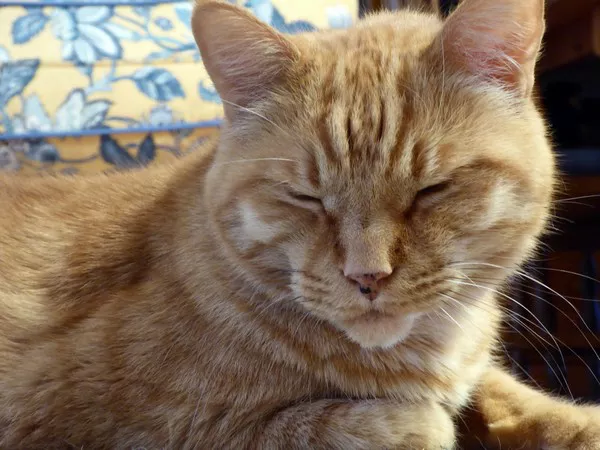Keeping your cat at a healthy weight is crucial for their overall well-being. Just like humans, cats can suffer from health problems if they are overweight or underweight. But how much should a healthy cat weigh? The answer depends on factors like breed, age, and body structure.
In this article, we’ll explore the ideal weight range for cats, how to check if your cat is at a healthy weight, and tips for maintaining proper feline fitness.
What Is the Average Healthy Weight for a Cat?
Most domestic cats weigh between 8 to 10 pounds (3.6 to 4.5 kg) when they are at a healthy weight. However, this can vary:
Small breeds (like Siamese or Singapura): 5–8 lbs (2.3–3.6 kg)
Medium breeds (like Domestic Shorthair): 8–12 lbs (3.6–5.4 kg)
Large breeds (like Maine Coon or Ragdoll): 10–25 lbs (4.5–11.3 kg)
Kittens weigh much less, usually around 1–2 lbs (0.45–0.9 kg) at 8 weeks old, and gain weight as they grow.
How to Tell If Your Cat Is Overweight or Underweight
Body Condition Scoring (BCS)
Veterinarians use a Body Condition Score (BCS) to assess a cat’s weight. This scale ranges from 1 (emaciated) to 9 (obese), with 4–5 being ideal. Here’s how to check:
Ribs – You should be able to feel (but not see) your cat’s ribs under a thin fat layer.
Waist – When viewed from above, your cat should have a slight inward curve behind the ribs.
Belly – A small pouch is normal, but a sagging belly may indicate obesity.
If your cat scores 6 or above, they may be overweight. If they score 3 or below, they could be underweight.
Health Risks of an Overweight Cat
Extra weight can lead to serious health problems, including:
Diabetes – Fat cells interfere with insulin function.
Joint pain & arthritis – Excess weight strains bones and joints.
Heart disease – The heart works harder to pump blood.
Liver disease – Fat buildup can cause liver failure.
Health Risks of an Underweight Cat
If your cat is too thin, they may suffer from:
Weak immune system – Lack of nutrients makes them prone to illness.
Muscle loss – Without enough protein, muscles weaken.
Organ failure – Severe underweight cats may have organ damage.
Factors That Affect a Cat’s Weight
1. Breed
Larger breeds naturally weigh more. A Maine Coon at 15 lbs may be healthy, while a Siamese at the same weight is likely overweight.
2. Age
Kittens grow rapidly, while senior cats may lose muscle mass and need adjusted diets.
3. Activity Level
Indoor cats burn fewer calories than outdoor cats, making weight management crucial.
4. Neutering/Spaying
Fixed cats have slower metabolisms and may gain weight if their diet isn’t adjusted.
How to Help Your Cat Maintain a Healthy Weight
1. Feed a Balanced Diet
- Choose high-protein, low-carb food.
- Avoid free-feeding; follow portion guidelines.
- Use puzzle feeders to slow down eating.
2. Encourage Exercise
- Play with interactive toys (laser pointers, feather wands).
- Provide cat trees and climbing spaces.
- Set up obstacle courses for mental and physical stimulation.
3. Monitor Weight Regularly
- Weigh your cat monthly.
- Track changes and adjust food or activity as needed.
4. Consult Your Vet
If your cat is losing or gaining weight unexpectedly, a vet can check for underlying health issues.
Special Considerations for Kittens and Senior Cats
Kittens
- Need more calories for growth.
- Feed kitten-specific food until they reach adult size (around 1 year).
Senior Cats (7+ years)
- May need lower-calorie food to prevent weight gain.
- Some seniors lose weight due to dental issues or illness—regular vet checks are important.
Common Myths About Cat Weight
Myth 1: “A fat cat is a happy cat.”
Truth: Obesity leads to pain and disease. A lean, active cat is healthier.
Myth 2: “All dry food helps with weight control.”
Truth: Many dry foods are high in carbs, which can cause weight gain. Wet food is often better.
Myth 3: “Cats will stop eating when they’re full.”
Truth: Some cats overeat, especially if bored. Portion control is key.
When to See a Vet About Your Cat’s Weight
Visit the vet if:
- Your cat suddenly gains or loses weight.
- They eat normally but still lose weight.
- They seem tired, weak, or in pain.
Conclusion
A healthy cat weight depends on breed, age, and lifestyle. Most cats should weigh 8–10 lbs, but larger breeds can be heavier. Use the Body Condition Score to check if your cat is at a healthy weight, and adjust their diet and exercise as needed.
Keeping your cat fit helps them live a longer, happier life. If you’re unsure about your cat’s weight, consult your vet for personalized advice.
Related topics:
























